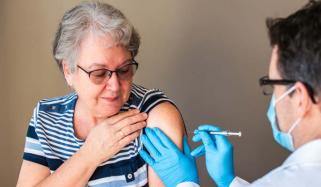
Two-thirds of the baby foods available in supermarkets are unhealthy, a new study revealed.
According to CNN, a study published in the journal Nutrients revealed that 60% of 651 baby foods available in the ten US markets for infants and toddlers did not meet the World Health Organisation’s nutritional standards.
The study author, Elizabeth Dunford, said in a press release, “Time-poor parents are increasingly choosing convenience foods, unaware that many of these products lack key nutrients needed for their child's development and tricked into believing they are healthier than they really are.”
The researchers found that 70% of the products failed to meet the WHO’s protein guidance, while 25% did not meet the calorie content.
Moreover, one in five of the baby food products has salt levels higher than the suggested limit.
Dunford noted, “Research shows 50% of the sugar consumed from infant foods comes from pouches, and we found those were some of the worst offenders.”
The study also unveiled that the sale of baby food products has been raised to 900% in the past 13 years in the US.
The study has raised questions about the health standards and misleading marketing of infant and toddler food pouches.















